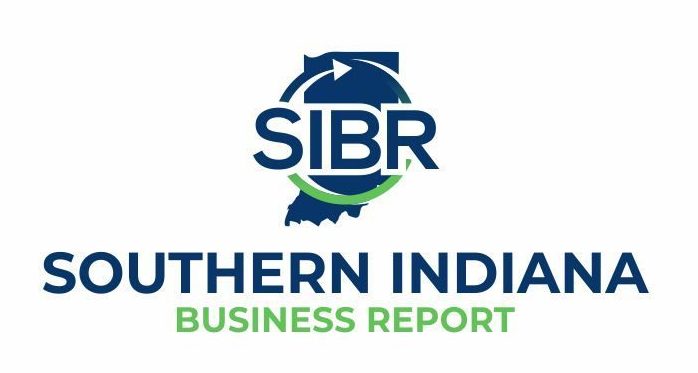Michael J. Hicks, Ball State University
Municipal elections are Nov. 7 in Indiana. That means mayors and city councils have been campaigning furiously for several months. I don’t live in a city, so I don’t get to vote in municipal elections. But local government is perhaps the most important determinant of our economic wellbeing, and our quality of life, so it deserves special attention.
Because these elections occur outside the federal election cycle, participation is sparse, which is a shame because municipal governance determines a host of issues that affect each of us. Our home values are heavily influenced by local crime rates, the quality of local roads, the condition of blight and most importantly schools.
There have been dozens of studies on each of these, reporting large effects. School quality alone can change the price of a home by 30%. Crime by an equal amount, and road quality by 10%. For comparison, imagine two identical, average homes, perhaps three bedrooms, 2.5 baths, and 1,900 square feet. The home located in a place with schools in the top 10 % and crime rates at the bottom 10% would be worth about $140,000 more than the same home located in the bottom 10% of schools and crime rates at the top 10%.
Just to put this in context, nothing the federal government does or does not do will have a lasting 5% impact on the inflation-adjusted value of your home. It is ironic that so many people hang on every piece of national political news, that for most folks will have little effect on their lives. At the same time, they will ignore local elections which will determine much of your prosperity and wellbeing. It is a real tragedy.
Interestingly, for most of my early years, I paid almost exclusive attention to national news. I went to high school inside the D.C. beltway, and my hometown paper was the Washington Post. Thereafter, I spent many years soldiering, where international news was of immediate importance. For the most part, I had no idea, or little way of knowing who my local elected officials were because I voted absentee in my home state. Two things changed my perception of local elections.
My doctoral training in economics focused on national economic policy, but as a young professor, I sat in on an undergraduate class about local government. On the very first day, the professor explained that there was more real policy change at the state and local level than anywhere else. Over the next few weeks her class made that clear.
As a research economist, I’ve spent a lot of time with mayors and other local elected leaders in several states. I quickly learned that these men and women play a major role in providing the best public services, preventing waste and abuse, and convincing businesses and families to invest in their communities. Over the years, my respect for local elected leaders has grown substantially.
Local elections matter
In recent years, I’ve been lucky enough to listen to mayors up close. Accelerate Indiana’s Municipalities (AIM) is the trade association for Indiana’s municipal government, dating back to 1890. My Ball State colleagues at the Indiana Communities Institute partner with AIM in running the Mayor’s Institute. This is a quarterly gathering of mayors, who hear updates on new legislation. They also hear a variety of presentations on emerging issues that affect cities. It is like a doctoral level course on cities.
From time to time, one of my colleagues or I are asked to present some of our recent research. It is a real treat for me to do this. Mayors ask tough questions about our work, and what it means for their city. I also get to sit in on many of the other presentations. It is a humbling exercise, but I learn a great deal from these men and women. It is fair to say that much of what we choose to study comes directly from the questions these mayors pose to us. That is a priceless gift to a university professor.
Through my relationship with the Mayor’s Institute, I’ve also had the chance to meet nearly every Hoosier mayor. It has been enlightening. There is very little talk about politics; it is all about policy. They are worried about the very same set of issues. How to pave the roads faster and at less expense, how to help local schools, how to reduce crime, and take care of blight.
When politics comes up, it is almost always in two parts. First, they do worry about electing city and county council members and county commissioners who will make their job easier. This is really a non-partisan concern. I always ask if the problems with other local governments are about party or personality. It is always personality.
The second problem they report has much to do with partisan politics. It is the nationalization of local politics. I hear this from both Democratic and Republican mayors. Their complaint is simply that nothing they try to accomplish can be disentangled from national political debates that have little or nothing to do with their work.
In Indiana’s cities, like most cities nationwide, the problems mayors face aren’t partisan issues. Potholes plague blue and red cities alike. Everyone struggles to pay for better police training, or to build fire houses that are modern and located in the right places. Every mayor worries about local school quality and safety, and how they can attract more people to visit their downtowns.
All these reasonable tasks get much harder when national political issues are used to distract from the problems at hand. I could devote a whole column to the petty silliness of both parties. Whether it is a push to defund already underfunded police, ban books that aren’t in the local library, or anger over a diversity hiring effort in a city that cannot fill vacant jobs the problem is real.
Healthy, vibrant cities aren’t just the economic future of Indiana, they are critical to the safety and prosperity of you and your family. They deserve your attention. So, I recommend you stop worrying about what is happening in other states and cities, and focus on electing the right people to yours.
Michael J. Hicks, PhD, is the director of the Center for Business and Economic Research and the George and Frances Ball distinguished professor of economics in the Miller College of Business at Ball State University.



